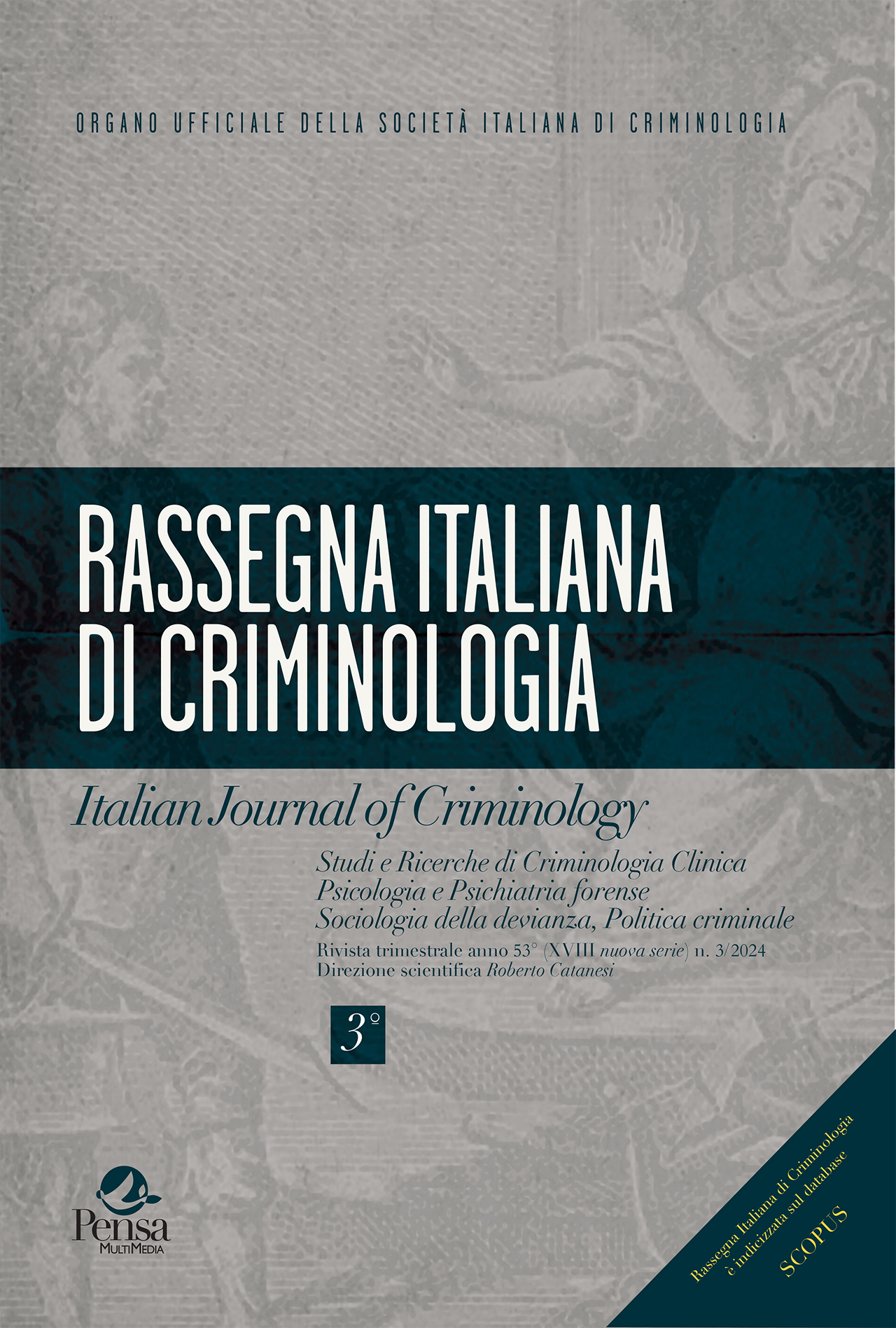Thought, responsibility and acting out: the relevance of Ferenczi’s criminology
Some Remarks about Ferenczi’s Criminology through a Case Study
DOI:
https://doi.org/10.7347/RIC-032024-p244Abstract
Ferenczi's criminology has historically had little consideration, despite it remains fundamental for the subsequent developments of psychoanalytic theory and clinic applied to the legal field. In this article, we will explore the theoretical implications of Ferenczi for criminology, drawing a lesson on acting out in general. Impulsive behavior appears to be the result of an interrupted or deficient process of subjectivation due to traumatic experiences that have not found elaboration due to a process of freezing and inhibition of the thought function. This concept of responsibility in psychoanalysis could be extended to the general functionning of subjectivity. Indeed, a case study of addiction shows a subject prey by self-destructive acts, where the thought function was not able to hold the impulse anticipating consequences.
Downloads
Published
Issue
Section
License
Copyright (c) 2024 Dario Alparone, Giorgia Tiscini; Raffaele De Luca Picione

This work is licensed under a Creative Commons Attribution 4.0 International License.





